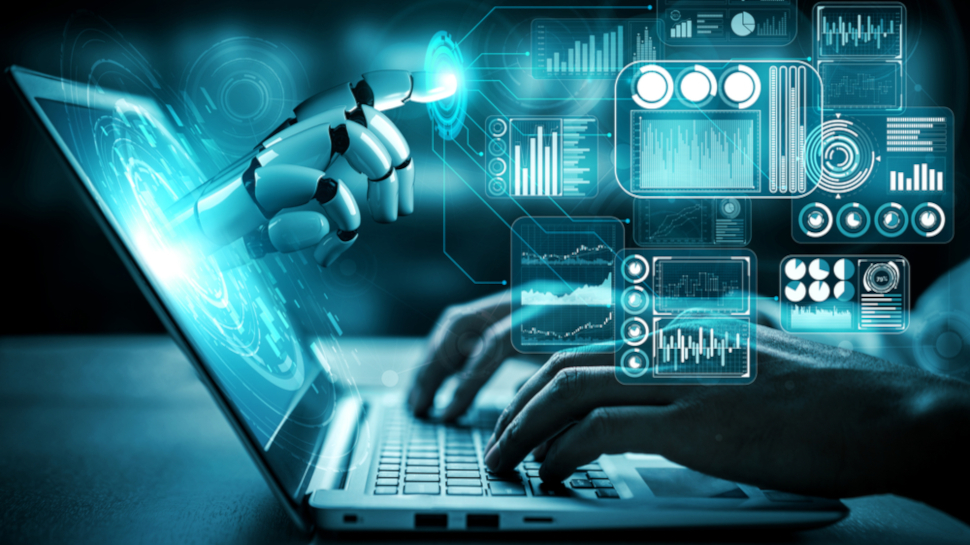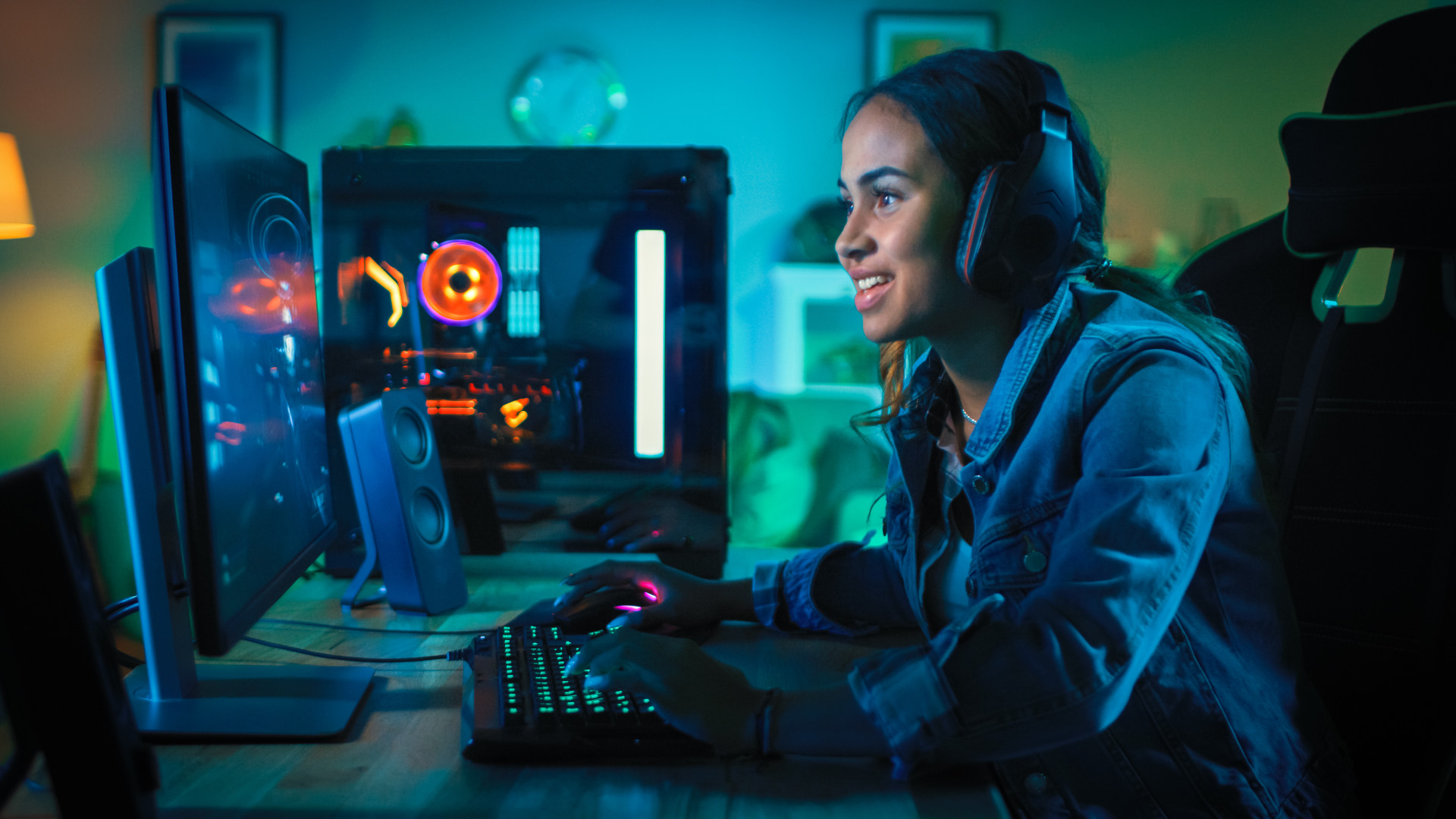Microsoft’s next-gen Windows sounds pretty mind-blowing with ‘groundbreaking’ new AI features
Ding! Windows is about to be seriously leveled up with AI, we’re told

Sign up for breaking news, reviews, opinion, top tech deals, and more.
You are now subscribed
Your newsletter sign-up was successful
Microsoft is cooking up a next-gen Windows – and it may not be called Windows 12 – with some huge new AI tricks, according to a new report.
This comes from Zac Bowden at Windows Central, one of the more prolific Windows leakers out there – and a good source for rumors in our experience – who has plenty to say about what Microsoft is planning to do with AI in the next version of Windows for 2024 (which is codenamed Hudson Valley).
Some heavy-duty work is planned to integrate AI throughout the Windows interface more deeply, bringing in a whole load of features, some of which are described as “groundbreaking”. According to Bowden’s sources, the cornerstone of this work will be an AI-powered Windows Shell.
This will benefit from an ‘advanced Copilot’ AI that’s constantly working away in the background, looking at your searches and what you’re doing, trying to understand the context and help appropriately.
Some examples are given, such as being able to use more natural language in a search in Windows, like “find me that file Karen sent to me on WhatsApp earlier this week.”
There will also be a timeline feature that allows you to scroll back through all your recent app and website usage which Copilot records, and you can search within that for any term.
We’re also told to expect an AI-supercharged version of Live Captions, capable of translating to multiple different languages in real-time, not just for video (or audio) playback, but also on a live video chat.
Sign up for breaking news, reviews, opinion, top tech deals, and more.
The slight catch is that some AI features will require NPU hardware – a Neural Processing Unit which is a partner chip for the CPU/GPU, one that specializes in accelerating AI tasks – and those will be more heavyweight capabilities. One example given is AI-powered upscaling of the image quality of videos or indeed games.

Bowden also contends that we could even get fancy wallpapers driven by AI, and indeed we’ve heard leaks previously about backgrounds that will use a parallax effect – one that interacts with the cursor, or gyroscope in Windows devices that have one, and looks like it’s popping out of your screen.
Away from AI – which will be the major focus of next-gen Windows, though we’d already guessed that – Microsoft is also planning changes to the interface. That includes a ‘Creator’ panel for the Start menu and File Explorer, which will be a hub for launching anything related to content creation in Windows. Bowden describes it as a kind of ‘launchpad for Microsoft 365’ bristling with shortcuts to your latest Word documents, PowerPoints, and so forth.
Furthermore, there’s even talk of shifting around bits of the core layout of the desktop, like putting the system tray (bottom-right) at the top of the screen – but more radical moves like this are likely for the future, not next year.
Finally, another major enhancement for next-gen Windows will come to energy saver (recently spotted in testing), with Microsoft seemingly looking at beefing up battery life by up to 50% in certain scenarios – which would be huge for laptop owners. And apparently, a new ‘green power’ option will be capable of detecting when the electricity it’s being fed from the socket is derived from renewable sources, and it’ll initiate charging if that’s the case. Pretty nifty.
When might we get all – or at least some – of these goodies? Bowden reckons that Microsoft is aiming to complete work on next-gen Windows in August 2024, and it’ll be rolled out around September or October, the typical time the big annual update is expected to arrive.
As we said at the outset, Bowden is also somewhat doubtful about whether this next version of Microsoft’s desktop OS will be Windows 12 – and we’ve already been discussing that in-depth elsewhere this morning (plus there’s some juicy new info on changes Microsoft is apparently planning for the release cadence of Windows).

Analysis: Game-changing possibilities
This is just talk – chatter from the rumor mill – so we must apply the usual skepticism, and consider that some of it might be fanciful, wishful thinking. But it does sound like AI really will make a big difference to the next incarnation of Windows.
Having a search function that allows for more natural use of language – “find those images I put on Google Drive from that Microsoft press kit last month” – would be hugely powerful. Not having to remember the exact name of a file you’re hunting out will be a huge boon in itself. (And hopefully, we can avoid Copilot inquiring: “Oh, and by the way, why aren’t you using OneDrive?”).
There are several game-changing possibilities mentioned here, like real-time captions delivered for video chatting with multiple language options. And in a very literal sense, NPU-powered upscaling for games could be very useful where Nvidia’s or AMD’s upscaling tech isn’t present, or supported – and it’ll be great for videos and watching Netflix, or your preferred streaming service, on your PC too.
What isn’t mentioned here, and would seem to be an obvious avenue of potential improvement, is Voice Access. Powering up speech recognition tech with AI seems like a way to make next-gen Windows truly innovative – Voice Access has already come a long way (since incorporating Dragon’s excellent tech), but surely there’s scope for AI to make it all the more powerful. And for spoken conversations with Copilot to become the norm, with no typing needed, and no misinterpretation.
In recent times, accessibility has been an area Microsoft has been laudably keen to make improvements with, and surely that theme will continue with AI helping to push the boundaries therein.
You might also like...
Darren is a freelancer writing news and features for TechRadar (and occasionally T3) across a broad range of computing topics including CPUs, GPUs, various other hardware, VPNs, antivirus and more. He has written about tech for the best part of three decades, and writes books in his spare time (his debut novel - 'I Know What You Did Last Supper' - was published by Hachette UK in 2013).